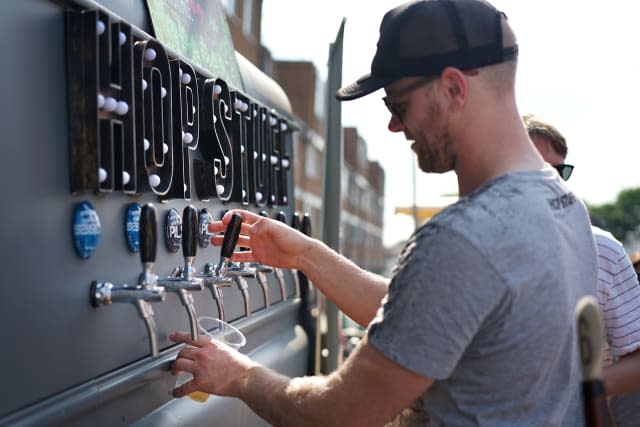Molson Coors snaps up craft brewer Hop Stuff in rescue deal

Carling owner Molson Coors has expanded its craft beer offering by snapping up London brewery Hop Stuff from administration.
The brewery, which was founded by James Yeomans in 2013, hired administrators KPMG after it struggled to stay afloat amid “tough financial headwinds”.
The deal will see Molson Coors acquire the brewery – which makes a range of IPAs, pilsners, porters and stouts – as well as its brands and taprooms.
Molson Coors said the brewery was “too good not to exist” so made a move to buy Hop Stuff after discovering its future was under threat.
The acquisition is part of Molson Coors’ strategy to make its portfolio more premium, which also saw it snap up UK cider brand Aspall in 2018.
Hop Stuff’s administration comes more than two years after it raised £744,000 from crowdfunding investors, who will not receive a penny back from their investment as a result of the rescue deal.
Mr Yeomans wrote a letter to investors apologising that they will be left empty handed, explaining that a full sale of the shareholding was “commercially unviable”.
In the letter, he said: “I am so sorry. I wanted so much to turn the passion you have for Hop Stuff Brewery into a financial win for you and I am absolutely gutted that hasn’t happened.
“I would completely understand if you wanted to wash your hands of us, but I very much hope that you don’t.
“In Molson Coors we’ve found a partner who believes wholeheartedly that craft beer should be accessible, inclusive and of exceptionally high and consistent quality.”
Jim Shearer, marketing director at Molson Coors, said: “We recognised in the Hop Stuff team a real shared value and ethos on craft beer.
““The brand and asset purchase of Hop Stuff is one more step we’re taking to premiumise our portfolio, while preserving the authenticity and provenance of much-loved brands.”
Neil Gostelow, partner at KPMG and joint administrator, said: “As is so common for young businesses facing cash shortages, Hop Stuff Brewery needed to find a buyer for its assets quickly or risk the whole business going into liquidation.
“Under the circumstances, it was the best possible option to make sure the business could continue to trade.”


